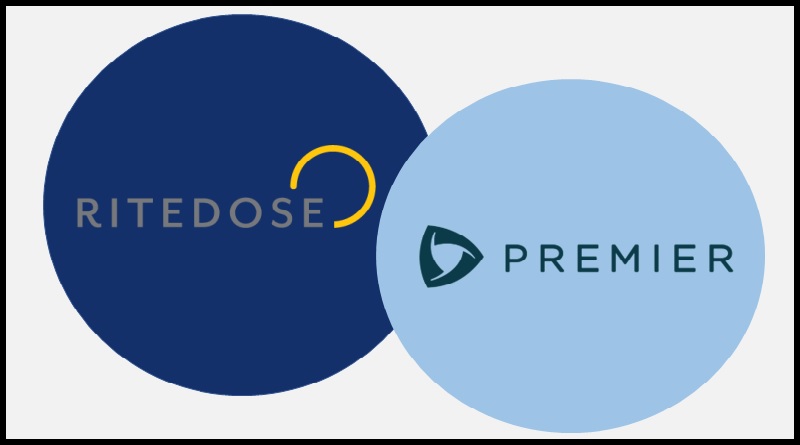Healthcare facilities today are struggling with serious personnel issues. According to official data published earlier this year, there are staffing shortages in nearly 19% of American hospitals. Nurses and doctors have deserted hospitals and healthcare centres due to the risky, high-stress conditions, which are mostly caused by the COVID-19 epidemic. More recently, the U.S. saw decisions and changes that may have an impact on a person’s access to healthcare, raising questions and worries from patients.
Healthcare administrations are already overburdened, so businesses must embrace smart technologies to enhance patient care while also enabling experienced professionals to devote more of their time and energy to situations that necessitate their entire range of skills.
Future-thinking healthcare professionals have looked to AI-powered chatbots to help ease some of the administrative labour that currently burdens today’s healthcare workers as a solution to this persistent problem. Chatbots can be used for a variety of tasks, such as:
- Pointing people in the direction of the precise healthcare information they need
- Offering a simple way to access the right information regarding insurance services and claims
- Assisting with the update of patient account data
These chatbots can be used by healthcare technology systems to improve patient experiences while reducing staff workloads by utilising conversational artificial intelligence (AI) created within corporate automation software and by using robotic process automation (RPA). RPA-powered software robots in Ireland assisted the Health Service Executive (HSE) in saving 22,000 hours of labor between September 2020 and December 2020 as the nation fought the COVID-19 pandemic.
RPA is best characterized as a class of digital virtual workers who mimic and incorporate human interaction with digital technology to carry out business processes. Simply said, the software simulates how a human would use a keyboard, mouse, and computer. RPA has the ability to update records, add data to databases, and save files. It’s like having a virtual employee, and staff members can build robots to perform repetitive, time-consuming activities like retrieving or updating medical records.
RPA enables nurses and administrators who are weighed down by repeated administrative tasks to focus on more worthwhile activities, such as connecting with patients and staff. RPA allowed HSE to gain more effective and timely data while processing as many COVID cases in one hour as humans had previously processed in five days. RPA has the potential to be an extremely effective tool in the healthcare industry when combined with conversational AI.
Consumers can converse with computer programs in the same manner they would with other people thanks to conversational artificial intelligence (AI). Advanced chatbots, often known as AI chatbots, are the main form that conversational AI has taken. Robots and chatbots may converse with one another in real-time utilising conversational AI. In order to process service requests, conversational AI encourages human and robot interaction in natural language. Additionally, this implies that RPA procedures can be started immediately from a chat, increasing operational efficiency.
Most people are familiar with consumer-focused chatbots, including those used in e-commerce to help customers find the best products or account holders update information. In a similar vein, chatbots in the healthcare industry can aid users in navigating services. Additionally, they aid with administrative tasks including scheduling appointments, sending out reminders, locating the appropriate medical forms, submitting claims, paying medical bills, and helping with prescription refills. Importantly, chatbots also give real-time responses, boosting the number of people who can use services concurrently and the possibility that patients will connect with healthcare services. Chatbots can understand the context of patients requesting assistance and can respond intelligently with the aid of conversational AI.
This kind of patient-focused automation was employed by Max Healthcare, one of the biggest hospital networks in North India, to streamline the claims and billing process. Max Healthcare was able to entirely automate the manual claims process with the aid of RPA-powered AI chatbots. For both administrators and patients, a time-consuming procedure was automated and streamlined. Max Healthcare was able to reduce turnaround times by 50% and eliminate up to 75% of the time needed to process health scheme data thanks to the use of these robots.
Additionally, it has increased employee satisfaction while enhancing security and compliance. Max Healthcare produced quicker and more direct outcomes by automating a tedious, frustrating, and time-consuming procedure for patients. Patients reported a favorable experience and were frequently pleased with the calibre of treatment they received, and administrators gained back time in their schedule to concentrate on more pressing matters.
Virtual care, which was used during the beginning of the epidemic, is not expected to disappear anytime soon. At least 60% of patients who utilized virtual care tools, according to a survey by Accenture, said that going forward, they plan to use technology more for interacting with healthcare professionals and managing their ailments. Chatbots are accessible around-the-clock, whereas healthcare staff frequently isn’t.
With RPA, conversational AI chatbots with a focus on healthcare are individually committed to supporting patients at any point during their care process. By reminding patients to take their meds, setting up follow-up appointments, updating any patient account information to reflect their most recent visit, and keeping their data available in one place, chatbots can be a valuable addition to a patient’s healthcare team. RPA technology then effortlessly makes sure that this information is delivered to the appropriate administrators and medical professionals, keeping them aware of patient needs and activity.
Healthcare businesses should investigate how chatbots can assist them reduce formerly time-consuming processes, regardless of their speciality, size, or location. Because so many tasks can be automated, the emphasis can still be on providing excellent patient care.






